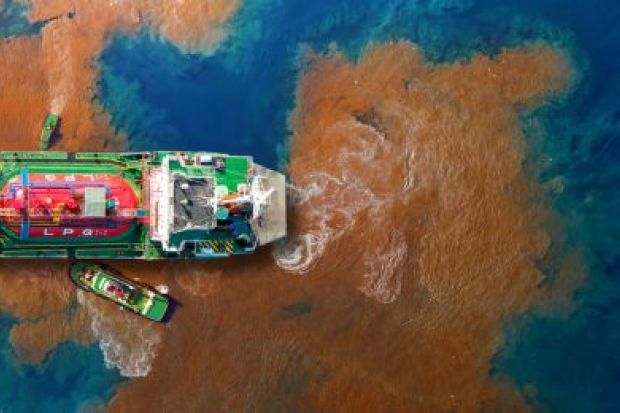Appeals to scientific consensus happen frequently now in public rows. The authority of scientific evidence is invoked in discussions about subjects as diverse as vaccination, genetic difference and the effects of a changing climate on flood risk, ostensibly intended to get everyone on the same page.
Yet throwing “the science” into those debates seems to be having almost the opposite effect, polarising people further.
In that context, this year’s Maddox Prize winner stands out as highly unusual for using evidence to bring people together, and she did it in one of the most tense and dangerous environments in the world. Her work offers lessons for other researchers involved in public debates.
The Niger Delta is West Africa’s largest oil-producing region, resulting in large areas suffering serious contamination, caused by spills from the companies working the oil fields and exacerbated by decaying infrastructure and damage from people breaking pipes to steal the oil. The oil from spills has been deposited by tides and floods on the extensive wetlands and mangroves, suffocating plants and fish and penetrating the soil – in some places for several metres, according to the UN Environment Programme. The region is also home to communities who live, fish and farm on that same land. Against a backdrop of conflict in the region, tensions over the pollution often spill over into violent confrontations. In that context, research to trial effective ways to clean up the soil and the rivers is both urgently needed and incredibly difficult.
Eucharia Nwaichi, a biochemist at the University of Port Harcourt, came to the attention of the judges of the Maddox Prize for engaging both the oil companies and the communities in her work on finding a solution to the pollution in the soil, despite the intense and often dangerous levels of conflict over the pollution.
Facing suspicion on all sides, Nwaichi convinced local people to be involved in setting up trials to find out how well plants extract the pollution from the soil in combination with restoring nutrients. She persuaded them to help her team to determine good sites for the experiments, and to supply the plants and manure that would enable them to discover what worked.
Her belief in the possibility of bringing people together to ask research questions may have its roots in her early experience, as a student, in resolving a dispute between a community and an oil company on the effects of liquid waste on fish stocks.
From monitoring the area, she showed that the effluent had not changed but that other activities by the company had caused overgrowth of an invasive palm, which was affecting the local ecosystem. The company rectified this in response to the evidence, which prevented an escalation of the conflict, and she developed an interest from local leaders in her scientific approach to the challenges that faced them. In any case, such a consensual approach to pursuing scientific issues is strangely rare.
Now in its 11th year, the Maddox Prize is a global award “for courageously advancing public discourse with sound science”, initiated by Sense about Science, where the late John Maddox was a founding trustee, and the journal Nature, where he was editor for 26 years. The nominations, which run to more than 100 from between 40 and 60 countries each year, paint a picture of the changing challenges of talking about scientific insights and evidence. They also provide a reading on how polarised discussions about scientific research have become. This is in spite of growing interest around the world in research outreach.
In fact, it seems that appeals to science reinforce the gulf between opposing views in society, and perhaps the pandemic has made this worse. It is difficult to recall an event about science and society in the past couple of years that has not featured slides with clipped quotes, inviting attendees to be horrified by the resistance to scientific conclusions that they demonstrate.
What Nwaichi has done, by contrast, is to convince people to agree on the process and to be part of the process, of using scientific research to answer questions.
She put herself at great risk to do it. Last year, in AkalaOlu Community, Nwaichi and her team went to do a tour of a polluted site that they planned to recover after an oil spill. As they found the farmland covered with a fresh spill, they were harassed by oil company officials, who confiscated the recordings and data, threatening and abusing Nwaichi and objecting to the work being conducted by a woman.
When the researchers eventually were able to collect their equipment, many items were missing and the files had been erased. Despite this, Nwaichi has remained committed to finding solutions to oil pollution and continues to try to find ways to build confidence in the research process so that everyone has a sound basis from which to fight for solutions. This is what bringing science to the public should look like.
Tracey Brown is director of Sense about Science, a charity that aims to increase public interest in sound science and evidence.
Register to continue
Why register?
- Registration is free and only takes a moment
- Once registered, you can read 3 articles a month
- Sign up for our newsletter
Subscribe
Or subscribe for unlimited access to:
- Unlimited access to news, views, insights & reviews
- Digital editions
- Digital access to THE’s university and college rankings analysis
Already registered or a current subscriber? Login








